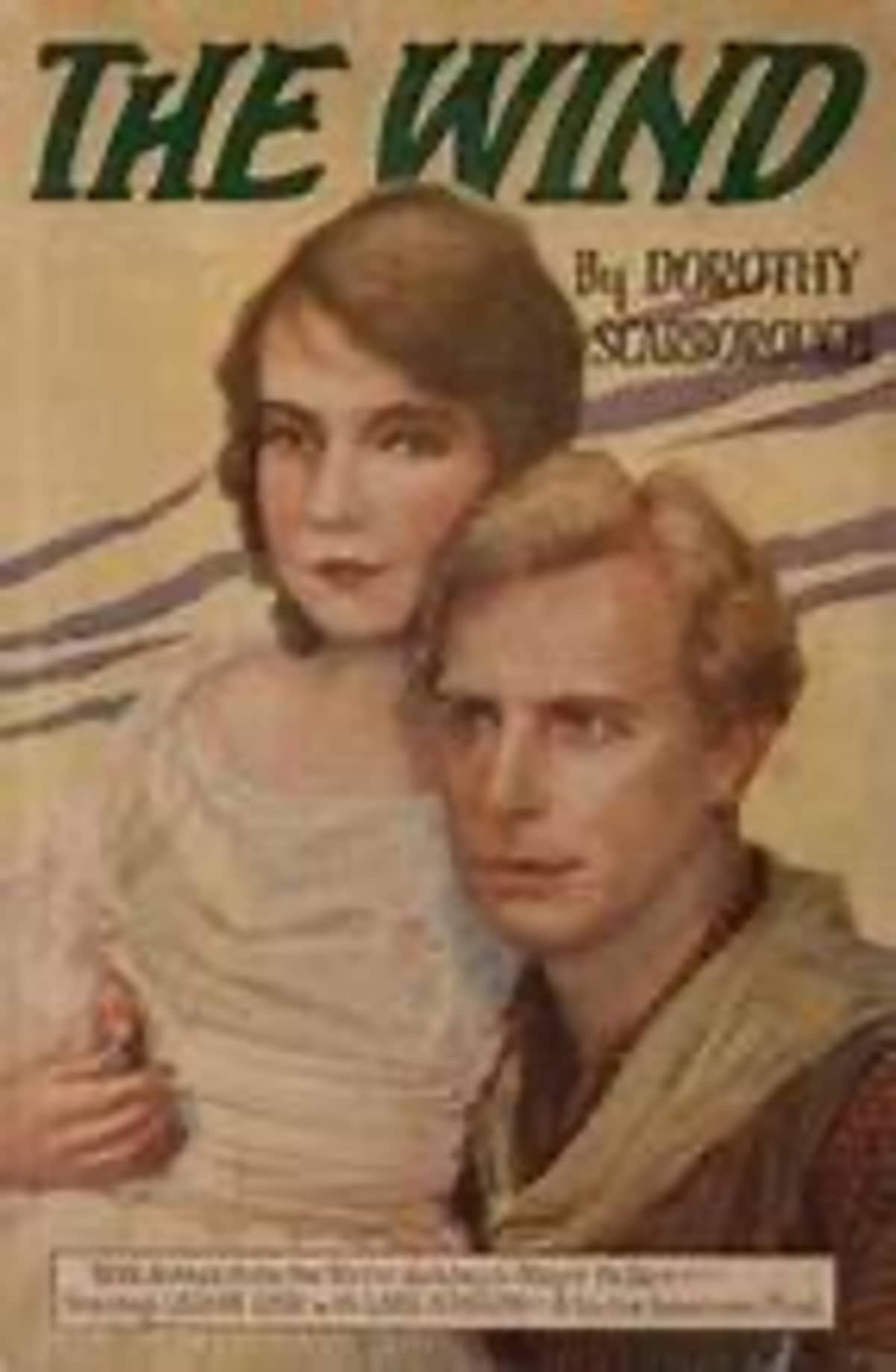Dorothy Scarborough who is best known for her book The Wind is not a familiar name to most readers of today, but in 1920’s Texas, she was famous—or infamous to some in Sweetwater. Part 1 of this blog post, a couple of posts before this one, discusses her birth in Mt. Carmel, Texas, and how at the age of four, her family moved to Sweetwater in West Texas for her mother’s health. Scarborough lived there for only a few years in the late 1800’s, but the area and her mother’s reaction to it left an impression. The ranching area with its constant winds, periodic dust storms, and hardships became the setting of The Wind, the novel that became a silent movie, starring Lilian Gist.
Emily Dorothy Scarborough, who graduated from Baylor University and became a professor there, having also attended Oxford (degrees were not conferred on women) and completed her Ph.d from Columbia University where she taught creative writing, became a renowned academic, author, folklorist, poet, and science fiction critic. It is her relation to science fiction that we will consider in this post.
Science Fiction had become a popular genre in Scarborough’s time though it did not often get respect among the academic community, but Dorothy found it an interesting subject, having chosen to write her dissertation on it. In fact, Gary Westfahl—writer, reviewer, and science fiction scholar called her “the first academic critic of science fiction.” In his 1999 article “On the Trail of a Pioneer: Dorothy Scarborough, The First Academic Critic of Science Fiction,” he says that Scarborough became interested in science fiction, which she called scientific supernaturalism, in her capacity as a folklorist and was most interested in its short story form. The science fiction short story had become an entertainment force for the middle class by the late 19th and early 20th centuries. Dorothy’s dissertation titled The Supernatural in Modern English Fiction was published by G. P. Putnam’s Sons in 1917. The book divided science fiction into such areas as romances, ghost stories, Devil stories, wizard stories, vampires stories, and supernatural folktales. Scarborough believed the fact of scientific supernaturalism’s popularity made it deserving of examination (Westfahl, Gary, 292).
Although as a writer, Dorothy was mainly a novelist, she edited and compiled two volumes of ghost stories and a volume of short stories, authored a collection of poetry, wrote short stories and poetry for journals and magazines, wrote book reviews, critical essays, and folklore articles, and was on the staff of the New York Sun.
Works Cited:
Westfahl, Gary. “On the Trail of a Pioneer: Dorothy Scarborough, the First Academic Critic of Science Fiction.” Extrapolation, vol. 40, no. 4, winter 1999, p. W92. Gale General One File, link. Gale.com/apps/doc/A601357/ITOF?u=txshrpub100443&sid=bookmark-ITUF&xid=70d46ef3. Accessed 19 Aug 2024
